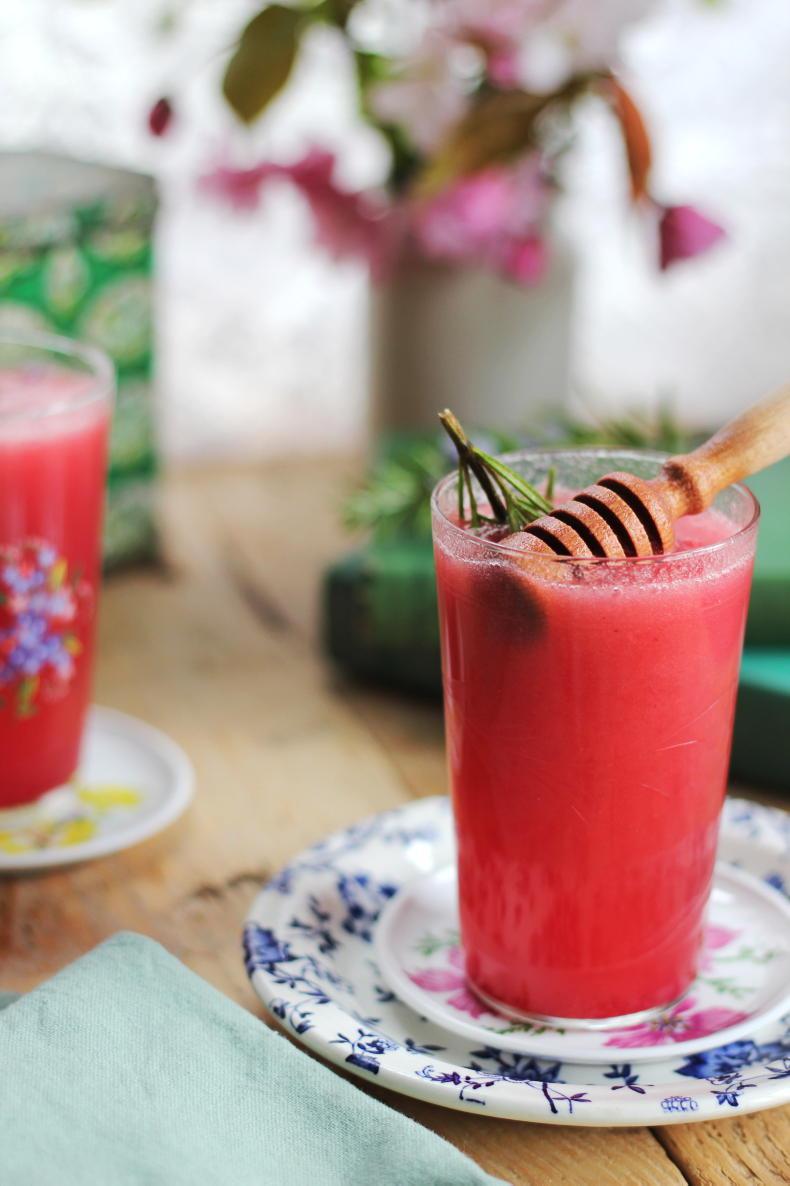Stomach ulcers, also known as peptic ulcers, are sores which develop when the lining of the stomach becomes damaged. They are most commonly caused by a bacteria that infects the stomach, called helicobacter pylori, or they can develop from the long-term use of certain medications, such as ibuprofen. The most common symptom of a stomach ulcer is a dull, burning pain in the abdomen.
Some people don’t experience any symptoms, but for others, along with pain, a stomach ulcer can cause nausea, diarrhoea, indigestion, heartburn, and bloating.
The cause of the ulcer will determine its treatment – an antibiotic is normally prescribed for an ulcer caused by helicobacter pylori. If it’s medication-induced, a different pain medication will be encouraged and an acid-lowering medication will often be introduced.
Along with whatever medical treatment is advised, your doctor will often recommend adjusting your diet, and choosing foods that are gentle on the tummy, which may also protect the lining of the stomach and ease some of the symptoms.
A nutrient-rich diet that includes a variety of whole grains and protein is beneficial for our overall health. Foods rich in fibre are especially important when tackling a stomach ulcer, as they can slow down digestion and reduce the acid concentration in the
stomach. Fibre-rich plant foods, such as fresh fruit and vegetables, seeds, nuts, beans, peas and lentils are all packed with vitamins, minerals and fibre. Eating sufficient portions of these will encourage a healthier digestive system. Probiotics help to balance the gut’s flora, and in turn can ease the exacerbation of excess acid. Miso, sauerkraut, kombucha, and kimchi are all good sources of fermented probiotics.
When trying to reduce the symptoms of an ulcer, there are some eating tips to consider. When the stomach is empty, symptoms can worsen as the stomach will keep producing acids even if there is no food in it. Therefore, eat little and often, replacing three larger meals with six smaller ones.
Eating slowly and chewing every bite thoroughly can help with the digestive process, as can sitting upright in a chair while eating. It is also important to have your last meal or snack at least three hours before bedtime, giving plenty of time for food to settle before lying down.
To encourage a healthy digestive system, we should aim to avoid high-fat, sugary, processed foods. To avoid an increase in acid production, coffee, both caffeinated and decaffeinated, should be limited. However, any food or drink can potetially cause irritation so it’s a good idea to keep a food journal to monitor what exacerbates the condition. Lentils are rich in protein, vitamins, and fibre, making them a nutritious addition to any stew or casserole.
Lentil Stew with Carrot & Sweet Potato Mash
Ingredients: Serves 4
For the stew:
1tbsp olive oil
1 onion, finely diced
1 red pepper, finely diced
175g dried lentils
2 cloves garlic, crushed
½ tsp cumin
½ tsp smoked paprika
Black pepper
600ml vegetable stock
For the mash:
500g sweet potatoes
200g carrots
1 tbsp honey
1 tbsp butter
Steamed broccoli, to serve
Method
1 Add the olive oil to a large saucepan, over a medium heat. Add the onion and red pepper. Then fry gently for a couple of minutes, stirring well.
2 Stir through the lentils, garlic, cumin, smoked paprika, and a twist of black pepper. Stir together to combine and add the vegetable stock.
3 Bring to the boil and simmer on a low heat for 20 minutes, but stir regularly to avoid the vegetables and lentils sticking to the bottom of the pan.
4 Roughly peel the sweet potatoes. Chop into even-sized chunks. Peel the carrots and chop into chunks, smaller than the sweet potato as they will take longer to cook. Place in a steamer and steam for 15-20 minutes, until soft.
5 Once the sweet potatoes and carrots are cooked, transfer to a clean saucepan and mash together with the honey and butter.
6 To serve, place a bed of the mash onto a plate and top with the lentil stew, and put some of the steamed broccoli on the side.
Research has indicated that cranberry juice can help fight against helicobacter pylori by suppressing the bacteria. It is best to choose 100% cranberry juice with no added sugar.

Cranberry Apple Juice.
Ingredients: Serves 2
300ml cranberry juice
1 red apple
1 thin slice of fresh ginger, finely grated
1 tsp honey
Handful of ice
Method
1 Add all the ingredients to a high-powered blender. Blitz on high for about a minute, until smooth.
2 Divide into two glasses and enjoy straight away.
Read more
Can the foods we eat help ease the pain of osteoarthritis?
Foods to soothe a sore mouth
Stomach ulcers, also known as peptic ulcers, are sores which develop when the lining of the stomach becomes damaged. They are most commonly caused by a bacteria that infects the stomach, called helicobacter pylori, or they can develop from the long-term use of certain medications, such as ibuprofen. The most common symptom of a stomach ulcer is a dull, burning pain in the abdomen.
Some people don’t experience any symptoms, but for others, along with pain, a stomach ulcer can cause nausea, diarrhoea, indigestion, heartburn, and bloating.
The cause of the ulcer will determine its treatment – an antibiotic is normally prescribed for an ulcer caused by helicobacter pylori. If it’s medication-induced, a different pain medication will be encouraged and an acid-lowering medication will often be introduced.
Along with whatever medical treatment is advised, your doctor will often recommend adjusting your diet, and choosing foods that are gentle on the tummy, which may also protect the lining of the stomach and ease some of the symptoms.
A nutrient-rich diet that includes a variety of whole grains and protein is beneficial for our overall health. Foods rich in fibre are especially important when tackling a stomach ulcer, as they can slow down digestion and reduce the acid concentration in the
stomach. Fibre-rich plant foods, such as fresh fruit and vegetables, seeds, nuts, beans, peas and lentils are all packed with vitamins, minerals and fibre. Eating sufficient portions of these will encourage a healthier digestive system. Probiotics help to balance the gut’s flora, and in turn can ease the exacerbation of excess acid. Miso, sauerkraut, kombucha, and kimchi are all good sources of fermented probiotics.
When trying to reduce the symptoms of an ulcer, there are some eating tips to consider. When the stomach is empty, symptoms can worsen as the stomach will keep producing acids even if there is no food in it. Therefore, eat little and often, replacing three larger meals with six smaller ones.
Eating slowly and chewing every bite thoroughly can help with the digestive process, as can sitting upright in a chair while eating. It is also important to have your last meal or snack at least three hours before bedtime, giving plenty of time for food to settle before lying down.
To encourage a healthy digestive system, we should aim to avoid high-fat, sugary, processed foods. To avoid an increase in acid production, coffee, both caffeinated and decaffeinated, should be limited. However, any food or drink can potetially cause irritation so it’s a good idea to keep a food journal to monitor what exacerbates the condition. Lentils are rich in protein, vitamins, and fibre, making them a nutritious addition to any stew or casserole.
Lentil Stew with Carrot & Sweet Potato Mash
Ingredients: Serves 4
For the stew:
1tbsp olive oil
1 onion, finely diced
1 red pepper, finely diced
175g dried lentils
2 cloves garlic, crushed
½ tsp cumin
½ tsp smoked paprika
Black pepper
600ml vegetable stock
For the mash:
500g sweet potatoes
200g carrots
1 tbsp honey
1 tbsp butter
Steamed broccoli, to serve
Method
1 Add the olive oil to a large saucepan, over a medium heat. Add the onion and red pepper. Then fry gently for a couple of minutes, stirring well.
2 Stir through the lentils, garlic, cumin, smoked paprika, and a twist of black pepper. Stir together to combine and add the vegetable stock.
3 Bring to the boil and simmer on a low heat for 20 minutes, but stir regularly to avoid the vegetables and lentils sticking to the bottom of the pan.
4 Roughly peel the sweet potatoes. Chop into even-sized chunks. Peel the carrots and chop into chunks, smaller than the sweet potato as they will take longer to cook. Place in a steamer and steam for 15-20 minutes, until soft.
5 Once the sweet potatoes and carrots are cooked, transfer to a clean saucepan and mash together with the honey and butter.
6 To serve, place a bed of the mash onto a plate and top with the lentil stew, and put some of the steamed broccoli on the side.
Research has indicated that cranberry juice can help fight against helicobacter pylori by suppressing the bacteria. It is best to choose 100% cranberry juice with no added sugar.

Cranberry Apple Juice.
Ingredients: Serves 2
300ml cranberry juice
1 red apple
1 thin slice of fresh ginger, finely grated
1 tsp honey
Handful of ice
Method
1 Add all the ingredients to a high-powered blender. Blitz on high for about a minute, until smooth.
2 Divide into two glasses and enjoy straight away.
Read more
Can the foods we eat help ease the pain of osteoarthritis?
Foods to soothe a sore mouth











SHARING OPTIONS